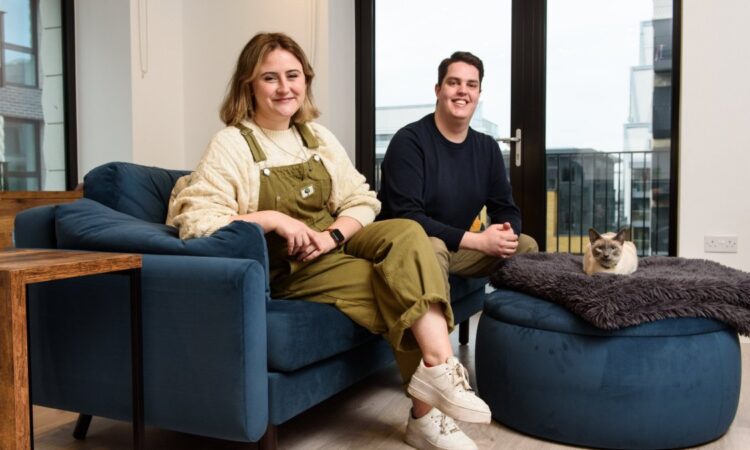
“F**k it”, is the conclusion Will Mayrick, 25, a TV producer, and his housemate Jacob Little, who works for an airline, 29, came to one day, when deciding to get a mortgage together. They had been housemates for around six years and both wanted to buy. When a friend pointed out they get on so well, happily renting in all that time, the logic of teaming up seemed obvious. Since then they have been looking around London for a two-bed.
Will and Jacob are far from anomalies. The housing crisis has given rise to a new phenomenon of “mate mortgages”; friends teaming up to get on the ladder.
While it’s more common to think of joint mortgages between romantic partners, according to data from the Mortgage Advice Bureau, seven percent of all prospective homebuyers now plan to buy with a friend, rising to 23 percent for 18-24 year olds. Ben Thompson, its Deputy CEO, says the attraction is “especially true when the potential of owning with friends is weighed against the alternative option of sharing ever-increasing rent payments with them.”
Miles Sandys, 26, and Katya Sparrow, 23, both single, have been living together for almost a year, after meeting each other at work and becoming friends.
“We lived quite close by” in Peterborough, Miles tells me, “so we spent a lot of time driving in to work together.” Both were keen to move out from their parents to London. Soon they hashed out a plan, finding Shared Ownership through Peabody most suitable for their financial circumstances.
Currently they pay 25 per cent of the property price (£187,000 of a £750,000 flat), having put down a deposit of 10 percent (£18,700) and spending around £2/300 in various fees and stamp duty. Their combined annual income is about £80k, and they spend £1,690 per month on their mortgage, rent and service charge. Even if the latter charges rise, Miles says it’s still a “nice deal for us”, particularly when you look at what others pay to rent.
Miles and Katya haven’t discussed what would happen if one of them moved out or found a partner, but Miles adds “we’re quite young” and some of his friends in long-term relationships aren’t living together yet; in other words, he and Katya envisage staying put for a while. They ultimately see their mortgage as more sensible than giving their well-earned money to landlords.
Similarly, Will and Jacob are relaxed about the possibility of one of them moving out. “I think people make it out to be a bigger deal than it is… you have to sell the house. It’s not the end of the world”, says Jacob. That or the housemates can find a new person to take on one half of the mortgage. “People are queuing around the block in London to be able to rent”, says Will.
Like Miles and Katya, Danielle Watts, a 26-year-old intensive care nurse, used a scheme to get on the housing, via Fairview New Homes, moving in with a friend. She had saved as much as she could, “picking up extra shifts in my role as a nurse throughout the Covid-19 pandemic”, but was unable to buy solo. Having previously paid £980 per month for one room in a five-bed house, she says she’s now paying half of that, and would have buddied up “way earlier” if she had known how easy the process would be.
Emma Fildes, a property buying agent and adviser, is generally wary of shared ownership schemes, but agrees that “buying with a friend makes a lot of sense”. She adds “you need to set out a clear cohabitation agreement with a solicitor that clarifies who’s responsible for what and get out clauses and mechanisms to do this. Without it, friendships could be tested.”
Ben Thompson recommends that “it’s essential to not make any quick decisions and really take the time to consider who would be a sensible individual to buy with. Consider, for example, how well you know an individual, their financial circumstances, credit history, and your relationship with them.”
By all indications, it’s advice that will become more pertinent in the future. This week, the Home Builders Federation (HBF) found that England has the lowest percentage of vacant homes per capita in the OECD, with a quarter of private renters “overburdened” by housing costs. The executive chair of the HBF warned of “the urgent need to act now”.
Some aren’t waiting to find out what will happen next. During the course of writing this piece, Will and Jacob have had their offer accepted on a flat in Battersea, south-west London, much to their delight. With so many unknowns in the housing market, a friend can offer much-needed predictability.







